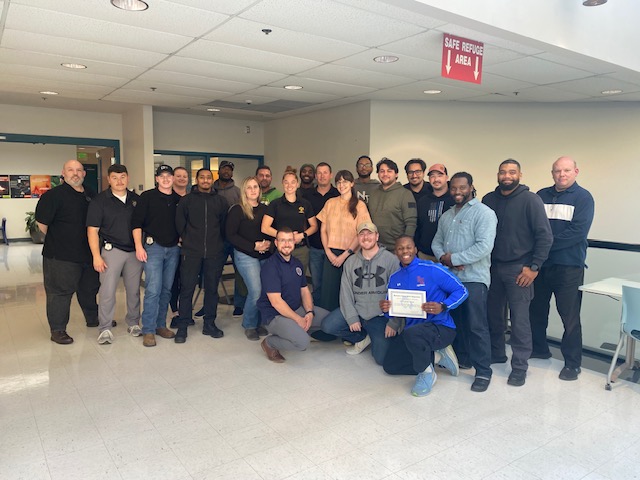
Every crisis call carries a moment when the outcome can shift. A few seconds where presence and tone matter more than the uniform or the badge. For many first responders, those moments come with pressure and uncertainty. But with the right support, training, and partnerships, they can become turning points where safety, trust, and humanity take center stage.
Crisis Intervention Team (CIT) training is built around that belief. Across Maryland and North Carolina, Santé has become a leader in preparing law enforcement, educators, and community partners to respond to behavioral health crises with skill and care. For us, CIT isn’t just a curriculum. It’s a commitment to meeting people in their hardest moments with dignity.
What CIT Really Means for a Community
CIT prepares responders to understand mental health symptoms, trauma responses, and de-escalation techniques. It also connects them with people who have lived experience. The combination shifts how officers see crisis, not as confrontation, but as an opportunity to support someone in pain.
When delivered well, CIT becomes a bridge. Officers, clinicians, advocates, hospitals, and community groups begin to work with the same language and intentions. And the community sees a different kind of response: one that prioritizes safety and connection.
This is where Santé’s model stands apart. Our CIT training is shaped by everyday crisis work. Our clinicians teach from thousands of real-world scenarios…moments where the right response made the difference between escalation and safety.
The Heart of CIT: Honoring Officer Mark Thompson
This year, we were honored to celebrate Officer Mark Thompson, a member of our Mobile Crisis Team, who received the annual CIT Officer Award. Each year, Baltimore City and Baltimore County recognize one officer whose work demonstrates compassion, commitment, and exceptional care for individuals living with mental health conditions.
Officer Thompson is known for steady, patient communication. He treats every person like a person, not a situation. His approach reflects the true spirit of CIT: slowing the moment, listening deeply, and creating space for our clinicians to step in with support.
His recognition affirms what our teams have long known. De-escalation is not just a strategy. It is a form of service.
Why This Training Matters Now More Than Ever
Santé continues to expand CIT programs across regions because communities need responders who can recognize pain and respond with clarity. With crisis lines open 24/7, mobile clinicians in the field, and partnerships with law enforcement agencies, we see every day how much difference training can make.
When officers understand behavioral health, the entire system becomes safer.
When clinicians and officers work side by side, trust grows.
When responders can de-escalate with confidence, people in crisis receive actual care, not punishment, not judgment, not fear.
Stronger Communities Start With Stronger Connections
The stories behind CIT aren’t always dramatic. Sometimes the moment that matters is a quiet conversation in a hallway. A steady voice at someone’s darkest point. A choice to pause instead of escalate. A step back instead of forward.
Santé believes every one of those moments changes outcomes.
This work will continue into the new year. More training. More partnership. More responders who know how to meet people at their most vulnerable and still see their strength.
Please join us in congratulating Officer Thompson on his well-deserved honor. His service reflects the future we are building. A future where crisis response brings safety, not fear. One where dignity is the standard and where communities feel protected, understood, and supported.
